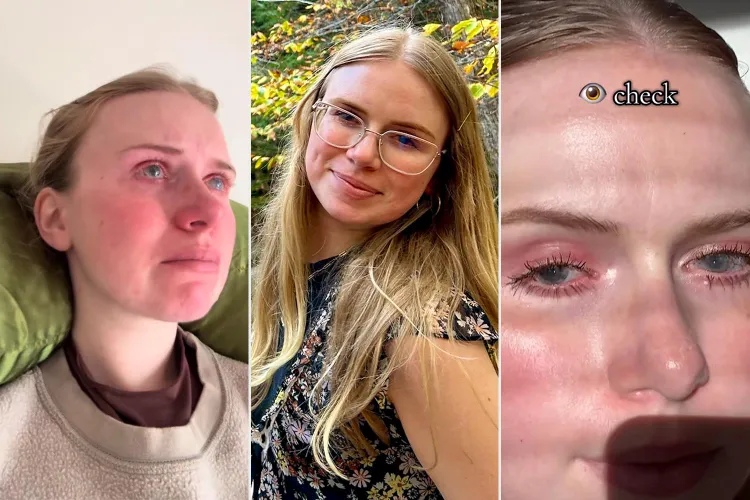26-Year-Old McEwen Baker Tearfully Documents Losing Her Vision After Corneas Begin to Die: “I Feel Powerless but Not Alone”
For 26-year-old McEwen Baker, life changed in a way she never could have imagined. What began as minor vision issues slowly turned into something much more devastating — a progressive loss of sight caused by her corneas deteriorating. Now, she’s opening up about her experience with raw honesty, using her voice to share what it’s like to face blindness in your twenties and how she’s finding unexpected strength through vulnerability.
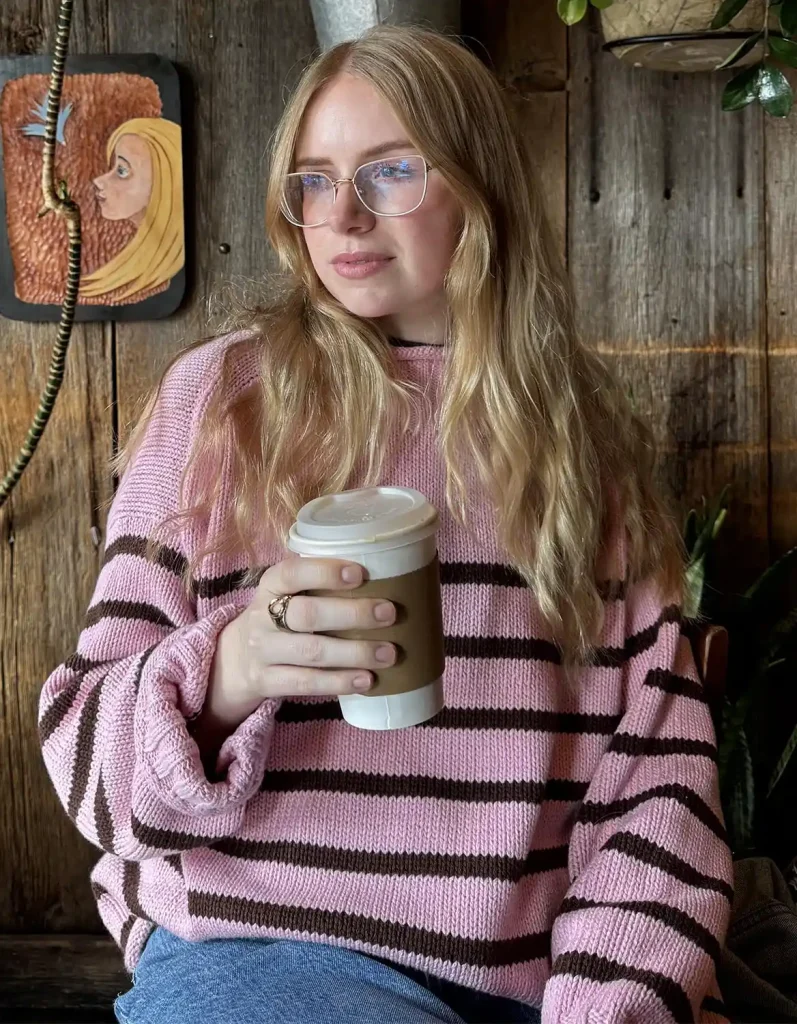
McEwen’s journey began with symptoms that seemed easy to ignore. Her vision blurred more often, light sensitivity increased, and she found herself struggling to focus on everyday tasks. She assumed it might be stress, eye strain, or something temporary. But as weeks turned into months, the changes became impossible to overlook. Doctors ran tests, and soon, the diagnosis came — her corneal cells were dying off, a rare and progressive condition that would gradually take away her sight. “It felt like my world just stopped,” McEwen shared through tears. “I remember sitting in the doctor’s office thinking, how am I supposed to live my life like this?”
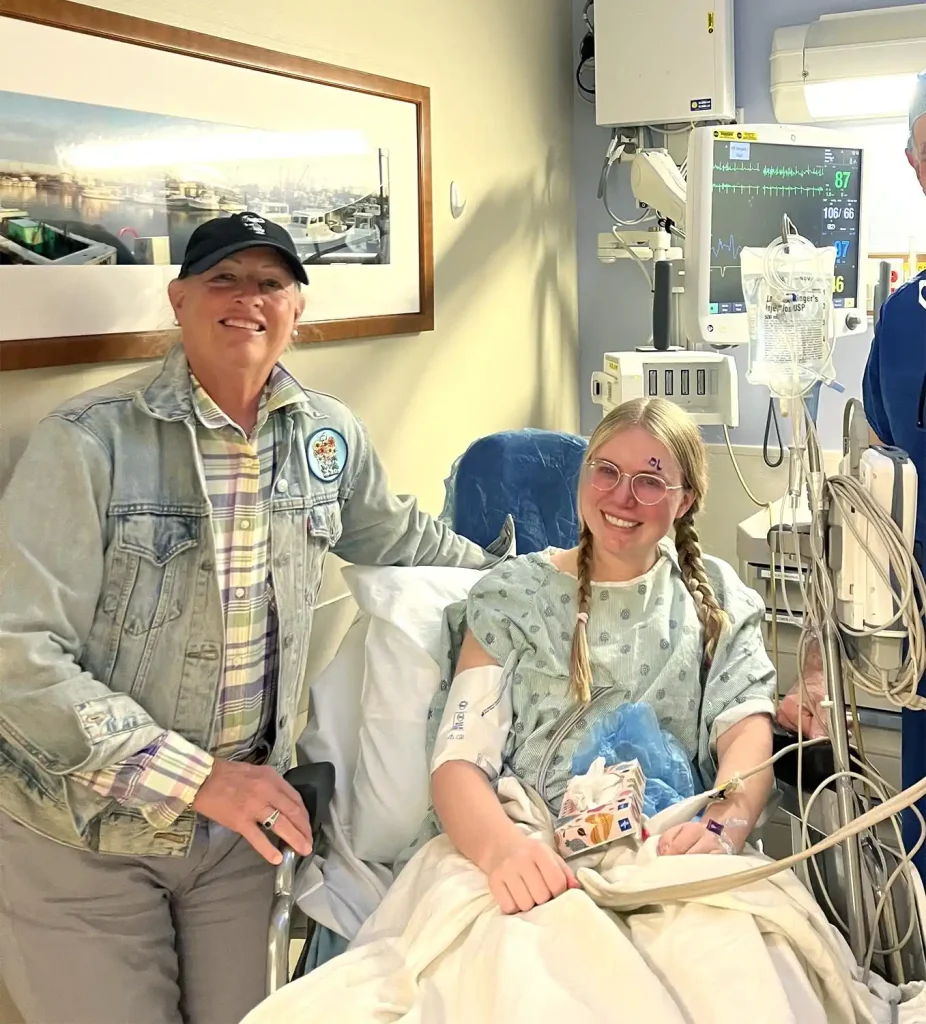
What makes McEwen’s story so powerful is not only her condition but her willingness to let people in. Through social media, she began documenting her journey, posting updates about her vision loss, her emotions, and her fears. Her openness drew thousands of followers — not out of pity, but admiration. Many saw themselves in her resilience. “I started sharing because I didn’t want to feel alone,” she said. “But now, I realize how many people out there are struggling too — maybe not with blindness, but with losing something they thought they’d always have.”
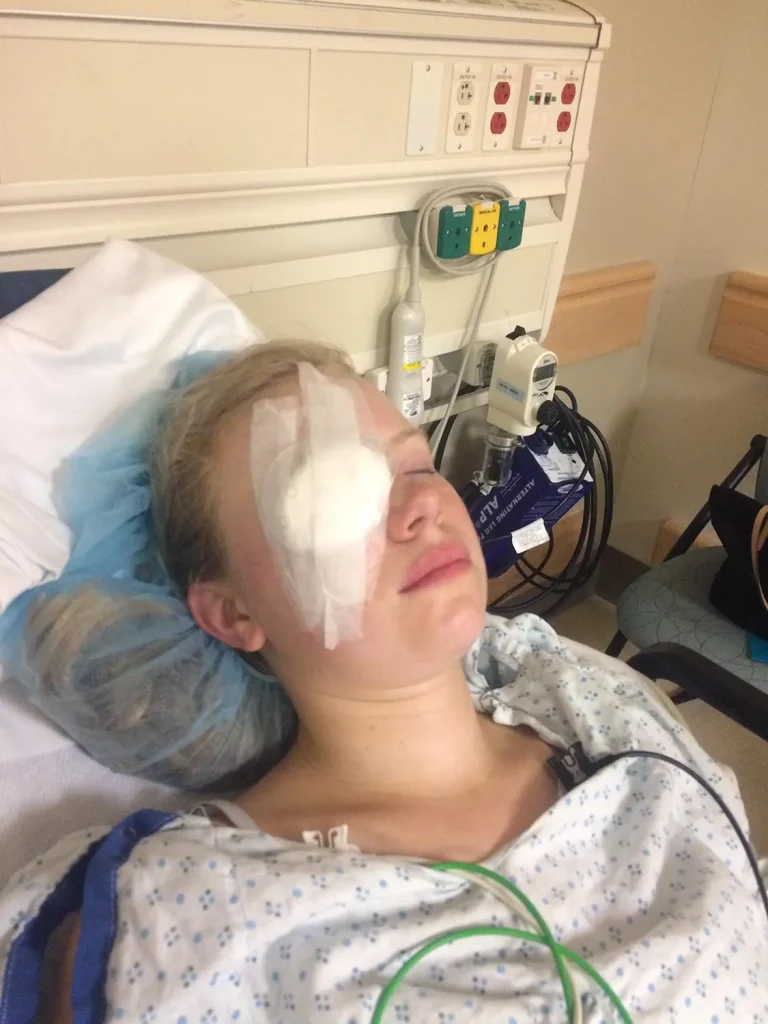
McEwen’s videos, often tearful but full of courage, show her grappling with both the practical and emotional challenges of her diagnosis. In one clip, she describes trying to make her morning coffee and missing the cup completely because she couldn’t see where it was. In another, she talks about mourning the small things — the way sunlight glistens through leaves, or the subtle expressions on her friends’ faces. “It’s not just losing sight,” she explained. “It’s losing connection with the world in the way I used to know it.”
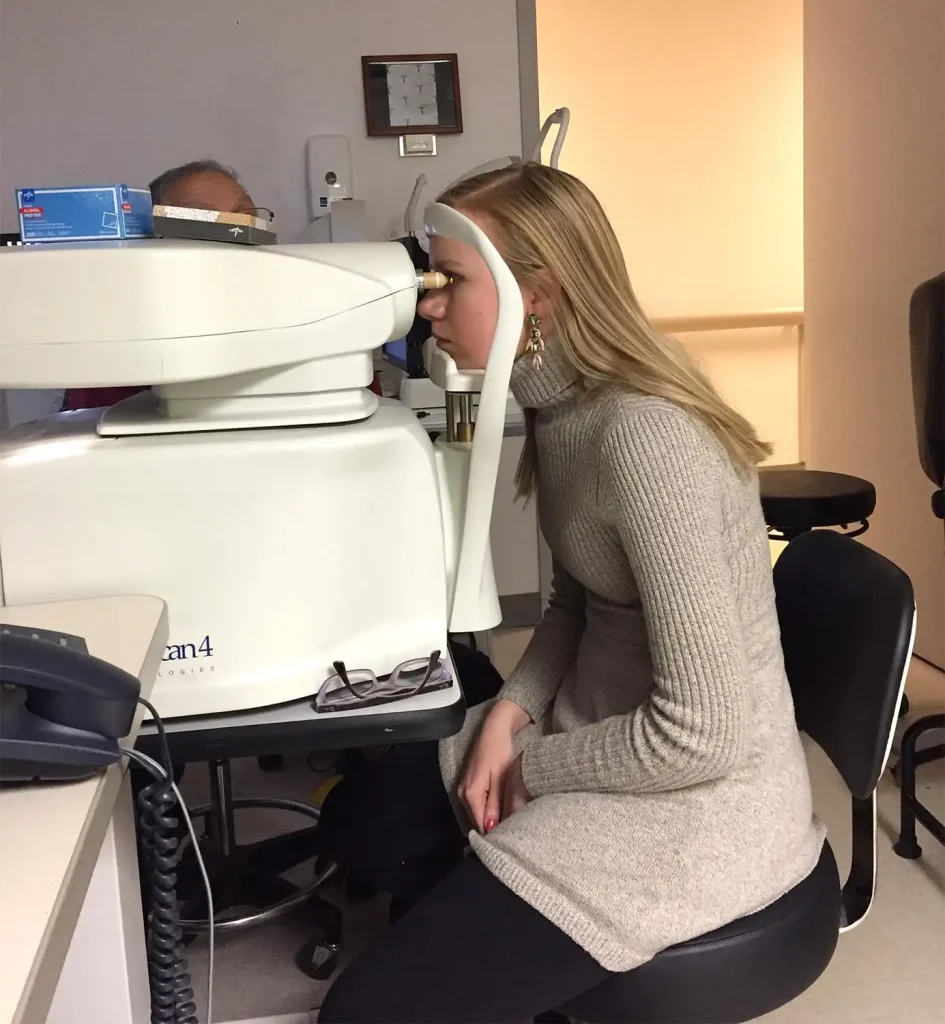
Her journey is not only heartbreaking but also deeply human. Amid the grief, there’s growth. McEwen has connected with others in the blind and low-vision community who’ve offered her practical advice and emotional support. She’s learned to use accessibility tools and assistive technology that allow her to navigate her world in new ways. “I’m slowly realizing that blindness doesn’t mean the end,” she said. “It just means life is going to look different — literally and emotionally.”
What stands out most about McEwen’s story is her strength in admitting fear. “I feel powerless sometimes,” she confessed in one of her posts. “But every time I share, and someone messages me saying I helped them feel less alone, it gives me back a little of that power.” Her followers often comment words of encouragement, many sharing their own stories of loss, disability, and rediscovery.
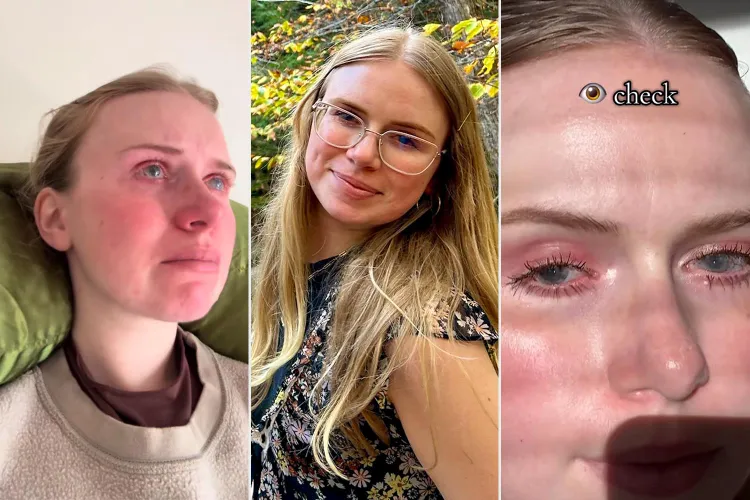
Through it all, McEwen has found purpose. She’s become an advocate for disability awareness and eye health, emphasizing that anyone can live fully even when life takes away something as vital as sight. She hopes her journey can inspire others to appreciate the moments they can see, while also reminding those facing disabilities that they’re not broken — just adapting.
In a world that moves so fast, McEwen’s story is a reminder of fragility, resilience, and grace. Her voice — steady but emotional — reminds us that even in the darkness, there’s still a way to find light. “I don’t know what the future holds,” she said softly in her latest post, “but I’m learning that it’s okay not to. I still have life to live, and I’m going to live it as brightly as I can.”
